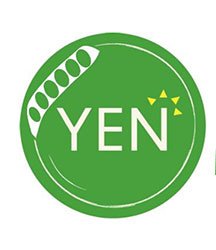United Kingdom
May 1, 2019

“PGRO has been coordinating a Yield Enhancement Network (YEN) for Peas over the last three seasons, working with ADAS, sponsoring partners and experienced agronomists, Now we are launching the Bean YEN as part of our continuing objective of striving for a perfect pulse crop and year-on-year consistency,” explains Roger Vickers, PGRO CEO.
The existing Pea YEN network is to be expanded and a new Bean YEN network established. With two years of intensive pea crop monitoring to gain critical understanding of key issues, the opportunity now exists for a wider base of both pea and bean growers to join in the YEN programme and benchmark their own experience with others.
The Pea YEN has been working towards current challenges in the pea growing sector, particularly how to increase average yields of dried peas, ensure consistency of yields, improve the crop quality and ensure attractive gross margins. A starting point is that the average UK commercial farm produces less than 4 tonnes per hectare combinable pea yields, with little increase in over 10 years, while high-yielding farms and trials can achieve in excess of 6 tonnes per hectare. The YEN model looks towards a pea yield 10 tonnes per hectare.
The Bean YEN is a natural complement to the Pea one and, with similar overall objectives, will look at the different challenges and opportunities for growers with field beans. As the Bean YEN progresses, different approaches between beans and peas will develop driven by plant physiology and agronomic differences. There is more variation in bean row width as direct drilling on wider rows is common and this could affect standard plant counts/establishment. Then there is the pest/disease pressure on beans to measure - Downy mildew, chocolate spot, rust, bruchid beetle? and free-living nematodes. That said, there is a positive factor that bean yields are in general less variable than for peas.
Interested growers should e-mail ADAS to receive an entry pack and protocol
(click here to download protocol) (click here to download the entry form)
The completed first two sheets on the entry pack should then be returned to beanyen@adas.co.uk / peayen@adas.co.uk
Roger Vickers adds that: “For both the pea and the bean YEN we have a slightly different objectives to the cereal and oilseeds YENs as there is not the emphasis on the competitive aspect between growers, although achieving maximum potential yields is still a focus. Instead growers and their supporting agronomists and sponsors are encouraged to share knowledge and discuss ideas on what factors limited their field yields and how the actual yields could be brought further in line with potential.
“Of course, PGRO also run the Bean Yield Challenge which is a competition to find the first grower to reach the target of a 10 tonne field bean crop by 2020.” (See www.pgro.org/bean-yield-challenge)